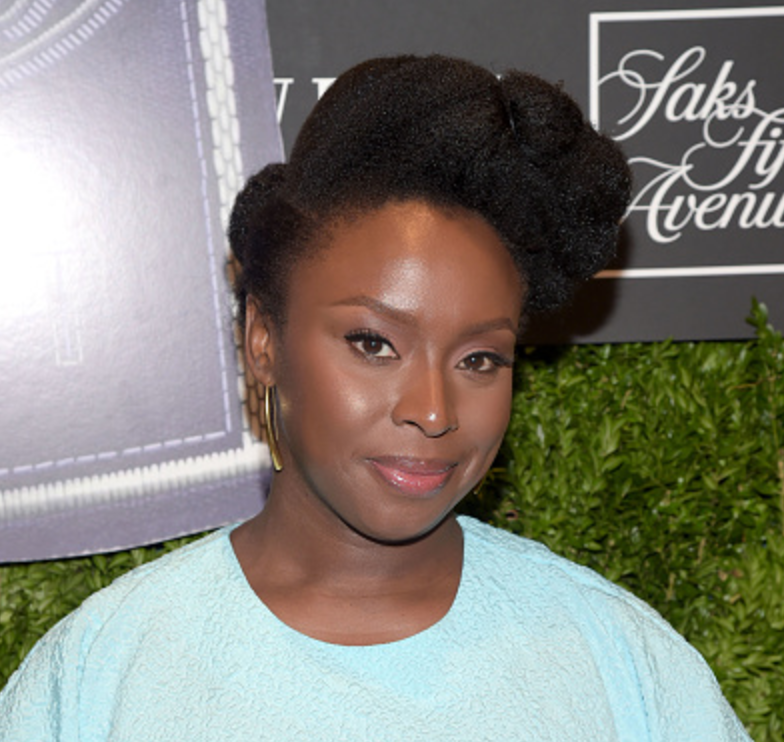
Before Beyoncé used a snippet of a TED Talk from Chimamanda Ngozi Adichie for her hit song "***Flawless" in 2013, Adichie was an acclaimed author. She'd already published Half of a Yellow Sun and Americanah, which won the National Book Critics' Circle award.
But, somehow, her accomplishments are always linked to popstar. That became a point a frustration, the author told Dutch newspaper de Volksrant in a recent interview. But Adichie made it clear that she appreciates the singer's work.
"In the first place: of course Beyoncé asked permission to use my texts, and I did give her permission. I think she's lovely and I am convinced that she has nothing but the best intentions. In addition, Beyoncé is a celebrity of the first order and with this song she has reached many people who would otherwise probably never have heard the word feminism, let alone gone out and buy my essay."
"But I was shocked about how many requests for an interview I received when that song was released. Literally every major newspaper in the world wanted to speak with me about Beyoncé. I felt such a resentment (laughs loudly). I thought: are books really that unimportant to you? Another thing I hated was that I read everywhere: now people finally know her, thanks to Beyoncé, or: she must be very grateful. I found that disappointing. I thought: I am a writer and I have been for some time and I refuse to perform in this charade that is now apparently expected of me: "Thanks to Beyoncé, my life will never be the same again." That's why it didn't speak about it much."
Despite the criticisms that Beyoncé receives for the way she practices feminism, Adichie expressed admiration for the star's political leanings:
"Her style is not my style, but I do find it interesting that she takes a stand in political and social issues, since a few years. She portrays a woman who is in charge of her own destiny, who does her own thing, and she has girl power. I am very taken with that."
"Still, her type of feminism is not mine, as it is the kind that, at the same time, gives quite a lot of space to the necessity of men. I think men are lovely, but I don't think that women should relate everything they do to men: did he hurt me, do I forgive him, did he put a ring on my finger? We women are so conditioned to relate everything to men. Put a group of women together and the conversation will eventually be about men. Put a group of men together and they will not talk about women at all, they will just talk about their own stuff. We women should spend about 20 per cent of our time on men, because it's fun, but otherwise we should also be talking about our own stuff."
